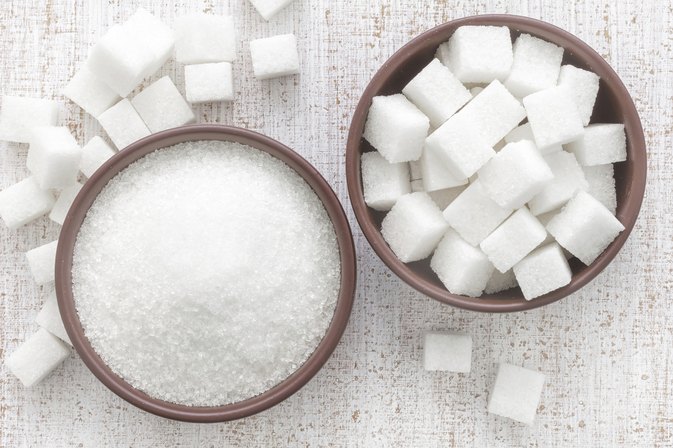Author
by
https://www.livestrong.com/article/457230-how-does-sugar-affect-your-body-badly/
by
The average American consumes 2 to 3 lbs. of sugar each week, according to healingdaily.com. This is because processed foods – which are a staple in most households – contain refined sugars in the form of sucrose, dextrose and high-fructose corn syrup. Consuming large amounts of sugar is not only detrimental to your waistline but also other parts of your body you may not be aware of.
VIDEO OF THE DAY
Weight Gain
The glycemic index is a measure used to describe a food’s effect on blood-glucose levels. Each food is given a specific rating, the lower the rating the slower the digestion process and a gradual release of sugar into the bloodstream. A food with a higher rating will cause your pancreas to release insulin to combat the higher glucose levels and lower them. The more sugar you eat, the more insulin is released into the bloodstream. Insulin promotes fat storage, thus rapid weight gain can occur. To avoid this process consume more complex carbohydrates because they are absorbed slower and don’t cause a spike in insulin levels.
Tooth Decay
Consuming sugar makes your blood very thick and sticky, which inhibits blood flow into the small capillaries that supply your gums and teeth with nutrients. This can lead to severe dental problems such as dental caries, also known as tooth decay and gum disease. According to a study done in 1954 called the Vipeholm Dental Caries Study, 400 adult mental patients were placed on controlled diets and observed for five years. One of the main conclusions was that sucrose consumption increased caries activity or the rotting of teeth, especially if the sucrose was consumed in a sticky form that adhered to teeth.
Neurological Processes
One of the main components of brain function is the chemical compound known as glutamic acid – found in vegetables. When sugar is consumed the bacteria in your intestines, which make B vitamin complexes, begin to die. When the B vitamin complex levels decrease, glutamic acid is not processed. Consequently sleepiness, decreased ability for short term memory function and decreased ability to calculate numerical values all can occur.
Withdrawal Symptoms
Refined sugar is not a food -- it is a chemical. During heating and mechanical processes all vitamins, minerals, proteins, fats and every nutrient are removed and only sugar remains. Sugar is habit-forming and has been compared to a narcotic. When removing sugar from your diet the first couple weeks you may experience some withdrawal symptoms, such as headaches, irritability and mood swings. Also when consuming sugar you can experience an increase in energy. However, this feeling is short lived and is often followed by a "crash," which can make you feel sleepier than before you consumed the sugary product.
https://www.livestrong.com/article/457230-how-does-sugar-affect-your-body-badly/






No comments:
Post a Comment